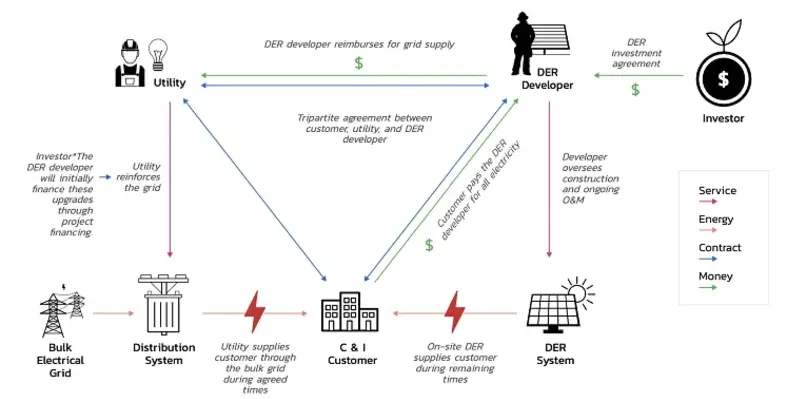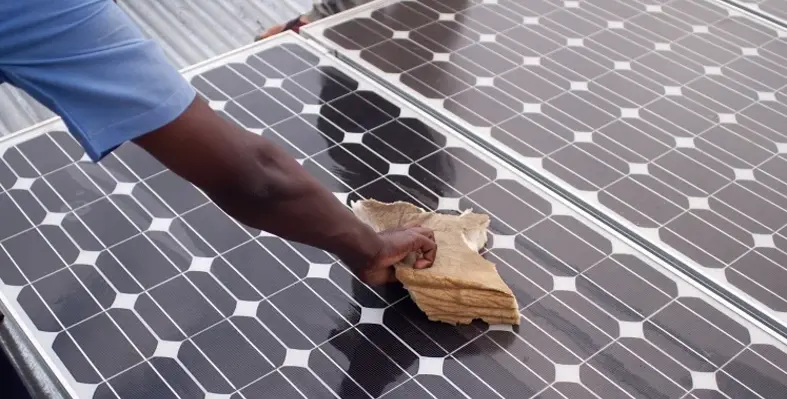Daystar Power and RMI (founded as Rocky Mountain Institute), have released a feasibility study that introduces a business model for grid-connected hybrid power systems in Nigeria
The study, funded by the U.S. Trade and Development Agency (USTDA), outlines the advantages of the new model (which targets 170,000 corporations and industrial manufacturers in the West African country) and projects there is potential to unlock a staggering 3.3GW of solar capacity while also attracting US$6.5bn in the process.
According to Daystar, the new model can unlock significant advantages for C&I customers and electricity distribution companies (DisCos) and centres around transitioning from diesel-fired generators to utility-enabled solar systems with backup battery storage. Businesses can reduce energy costs by embracing utility-enabled solar systems while DisCos stand to benefit from increased revenues through enhanced grid consumption and the connection of new customers.
“This feasibility study has been in the works for a long time, and we’re elated to announce its results,” remarked Victor Ezenwoko, Daystar Power, country head of Nigeria and Ghana. “While Nigeria’s solar industry is taking off, it’s still relatively in its early days, and innovative studies like this are key to deepening the market and adding more value to the business community. We can provide even more affordable and reliable power to Nigerian businesses if we team up with distribution companies in close partnerships to solve challenges and eliminate uncertainties in the power value chain.”
The proposed business model is based on an agreement between Daystar, the DisCo and the customer. Daystar installs and operates a fully-financed hybrid solar system to provide power supply during daytime peak hours to a Nigerian business while the DisCos extend hours of grid power to supply electricity during the rest of the day cycle. Additionally, backup generators and batteries mitigate against grid outages.
Energy savings for Nigerian businesses
With many Nigerian businesses depending on diesel-fired generators as both primary and backup power sources at a time when fuel prices are soaring, Daystar has suggested that the model could provide serious energy cost savings to customers while also benefitting DisCos. To prove this point, the company has now released the findings of a feasibility study conducted by Daystar and RMI in the country in 2023. This centred around the development of a custom hybrid solar power system that integrated the national grid for 20 C&I customers in Abuja and Lagos, working in partnership with Abuja Electricity Distribution Company, Eko Electricity Distribution Company, and Ikeja Electric. The study reportedly found that 17 out of 20 customers saved on energy costs and experienced average savings of 26%, 27MW of new solar capacity was brought online, and DisCos’ profitability surged by 1,000%.
“The business model exemplifies that unlocking sustainable grids and scaling distributed energy systems can go hand in hand and create win-win-win scenarios for customers, developers, and DisCos. It’s time for radical clean energy implementation, and we hope the project will lead to scaling distributed energy resources (DERs) in Nigeria to help improve reliability and reduce reliance on expensive, polluting fuels,” remarked Suleiman Babamanu, RMI, Nigeria program director.













